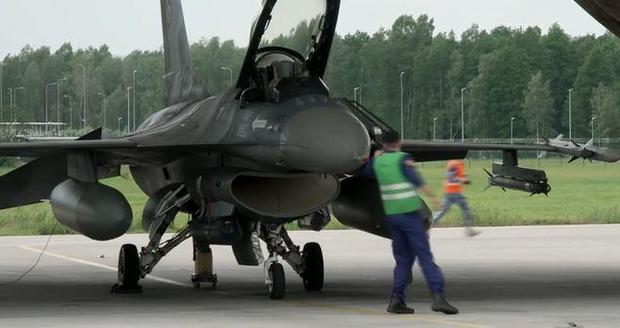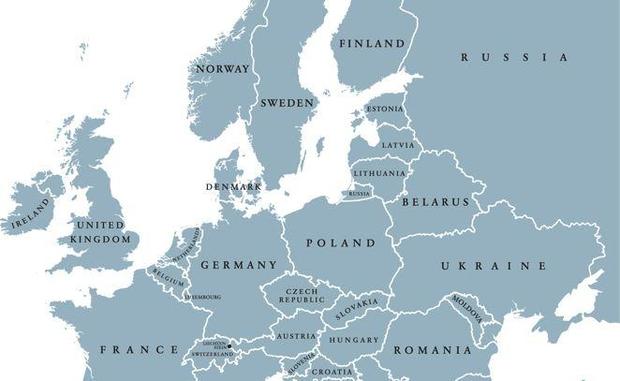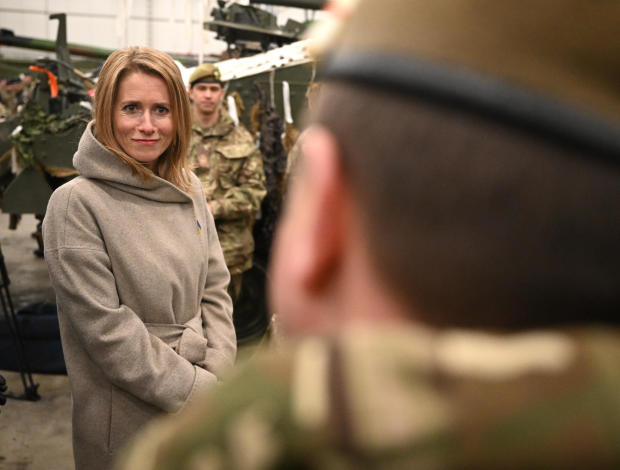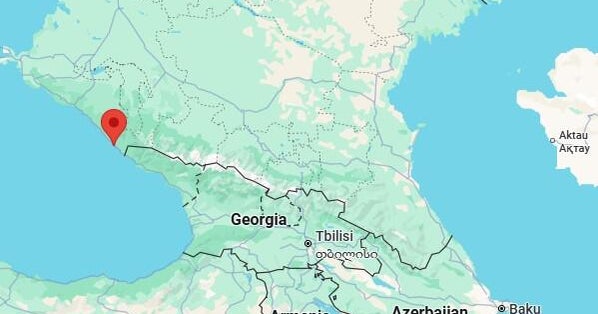NATO allies on Russia's border look "to America for leadership" as Putin seizes territory in Ukraine
Eindhoven Air Base, Netherlands — President Biden will attend a summit of the North Atlantic Treaty Organization (NATO) next week in the Baltic nation of Lithuania, one of the countries considered most at risk of potential Russian aggression following Vladimir Putin's decision to launch a full-scale invasion of Ukraine.
NATO binds the U.S. to its European allies with a promise to defend each other if they come under attack. In Europe, they also work together to intercept Russian aircraft that approach NATO airspace.
Lithuania is one of three Baltic states — the others being Latvia and Estonia — that share a land border with Russia, its close ally Belarus, or both.
CBS News was able to join the crew of a NATO aircraft flying out of Eindhoven Air Base in the Netherlands, a refueling base for the alliance, to see how the air forces from NATO countries carry out joint drills to protect their airspace.
When sirens sounded to scramble NATO F-16 fighter jets recently from another air base, further east in Europe, the flight crews from America's European allies had just 15 minutes to get into the air.
It was just a training exercise, but the threat the forces are training for is real. Since Russia launched its invasion of Ukraine in February 2022, NATO has ramped up flights policing the airspace along the alliance's eastern flank.
Nearly all the planes they intercept are Russian military aircraft testing the perimeters of NATO airspace — sometimes with their transponders off in violation of international regulations.
There were close to 600 intercepts last year alone.
CBS News flew over Europe in a refuelling tanker as NATO fighter jets practiced intercepting the friendly aircraft.
Maj. Gen. Harold Van Pee, who commands NATO's Combined Air Operations Center, said the Baltic Sea has become a hot spot, with Russia on one shore and several of America's NATO allies on another. That includes Estonia, a tiny nation smaller than West Virginia with a population of just over 1 million.
But as Estonian Prime Minister Kaja Kallas explained to CBS News, "when you have a bully in school, the bully does not bully you when you… have big friends, and this is the way NATO works."
Kallas' small country was once invaded and occupied by the then-Soviet Union. Now independent, Estonia shares a border with Russia.
We asked Kallas how important for her country, and other democracies living in the shadow of Russia, American leadership has been amid Russia's invasion of Ukraine, in terms of unifying NATO's response.
She noted that the U.S. is the biggest ally in NATO, "and therefore everybody's looking up to America for leadership."
Kallas referred to the ongoing standoff with Russia over Ukraine as "a fundamental fight for freedom."
But high-profile politicians in the U.S. are questioning whether, or to what degree, America should continue to support Ukraine as it tries to fend off the Russian invasion.
Former President Donald Trump, who's making another bid for the White House next year, has promised to "have the disastrous war between Russia and Ukraine settled." He didn't say how, but he promised: "It will be settled quickly."
It could mean that a second term under Trump would see the U.S. pressure Ukraine to give up part of its sovereign territory in exchange for a truce with Russia, and that prospect makes some of America's allies in Europe nervous.
Kallas said there's no shortage of things keeping her up at night, but "one of the nightmares is that our unity is falling… We have kept this unity and, I think my nightmare is… this unity falling apart."
The Estonian leader told CBS News she's already seeing cracks appear on the other side, with clear challenges to the unified message long presented by Russia. The recent failed mutiny by the Wagner mercenary group being the most vivid example.
Sooner or later, Kallas — whose tiny nation has committed around three times as much aid to Ukraine as the U.S. as a percentage of its GDP — believes Moscow will realize it simply cannot win the war.
Like her Baltic neighbors, she'll be eager to see that happen before any cracks appear to compromise the unified position of the NATO alliance.









